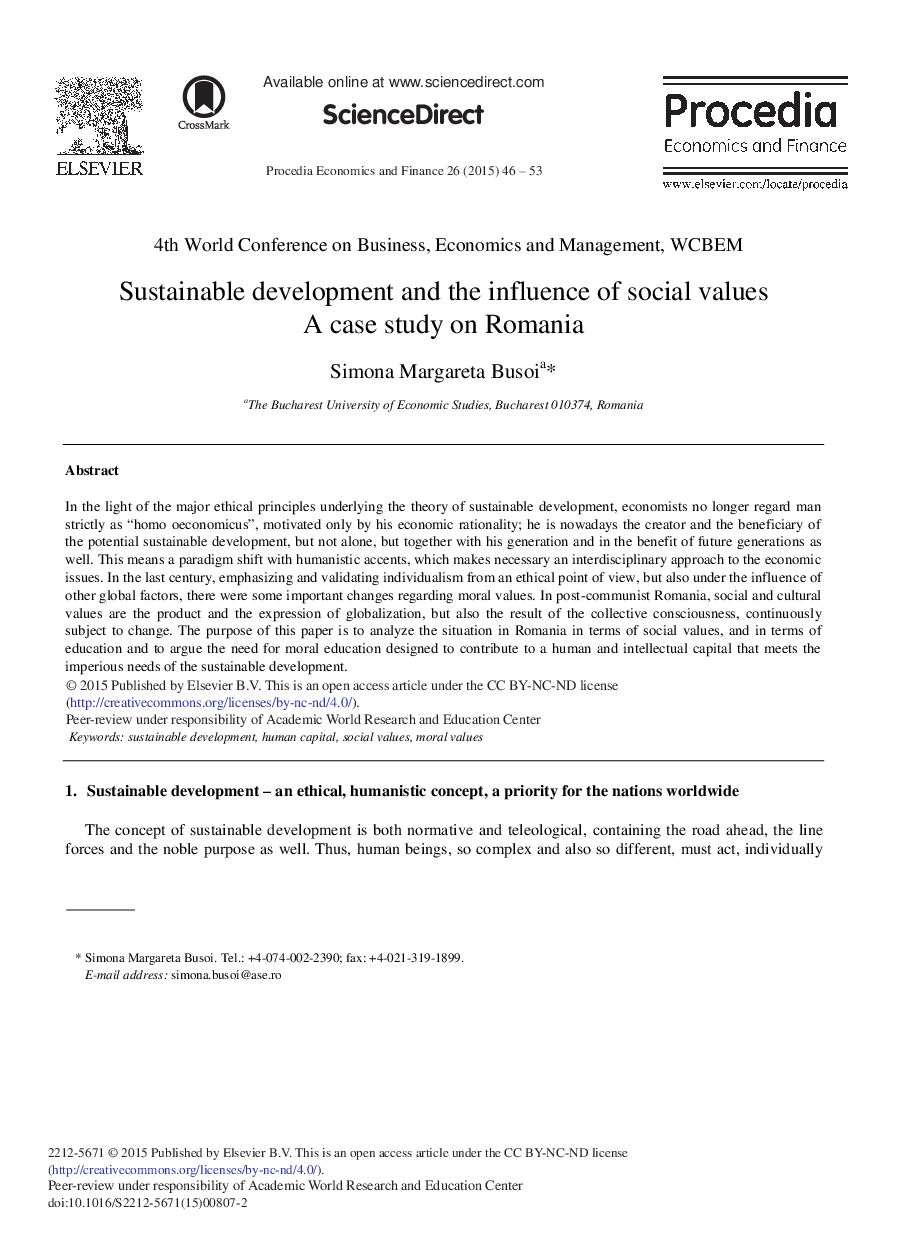| Article ID | Journal | Published Year | Pages | File Type |
|---|---|---|---|---|
| 980905 | Procedia Economics and Finance | 2015 | 8 Pages |
Abstract
In the light of the major ethical principles underlying the theory of sustainable development, economists no longer regard man strictly as “homo oeconomicus”, motivated only by his economic rationality; he is nowadays the creator and the beneficiary of the potential sustainable development, but not alone, but together with his generation and in the benefit of future generations as well. This means a paradigm shift with humanistic accents, which makes necessary an interdisciplinary approach to the economic issues. In the last century, emphasizing and validating individualism from an ethical point of view, but also under the influence of other global factors, there were some important changes regarding moral values. In post-communist Romania, social and cultural values are the product and the expression of globalization, but also the result of the collective consciousness, continuously subject to change. The purpose of this paper is to analyze the situation in Romania in terms of social values, and in terms of education and to argue the need for moral education designed to contribute to a human and intellectual capital that meets the imperious needs of the sustainable development.
Related Topics
Social Sciences and Humanities
Economics, Econometrics and Finance
Economics and Econometrics
Authors
Simona Margareta Busoi,
